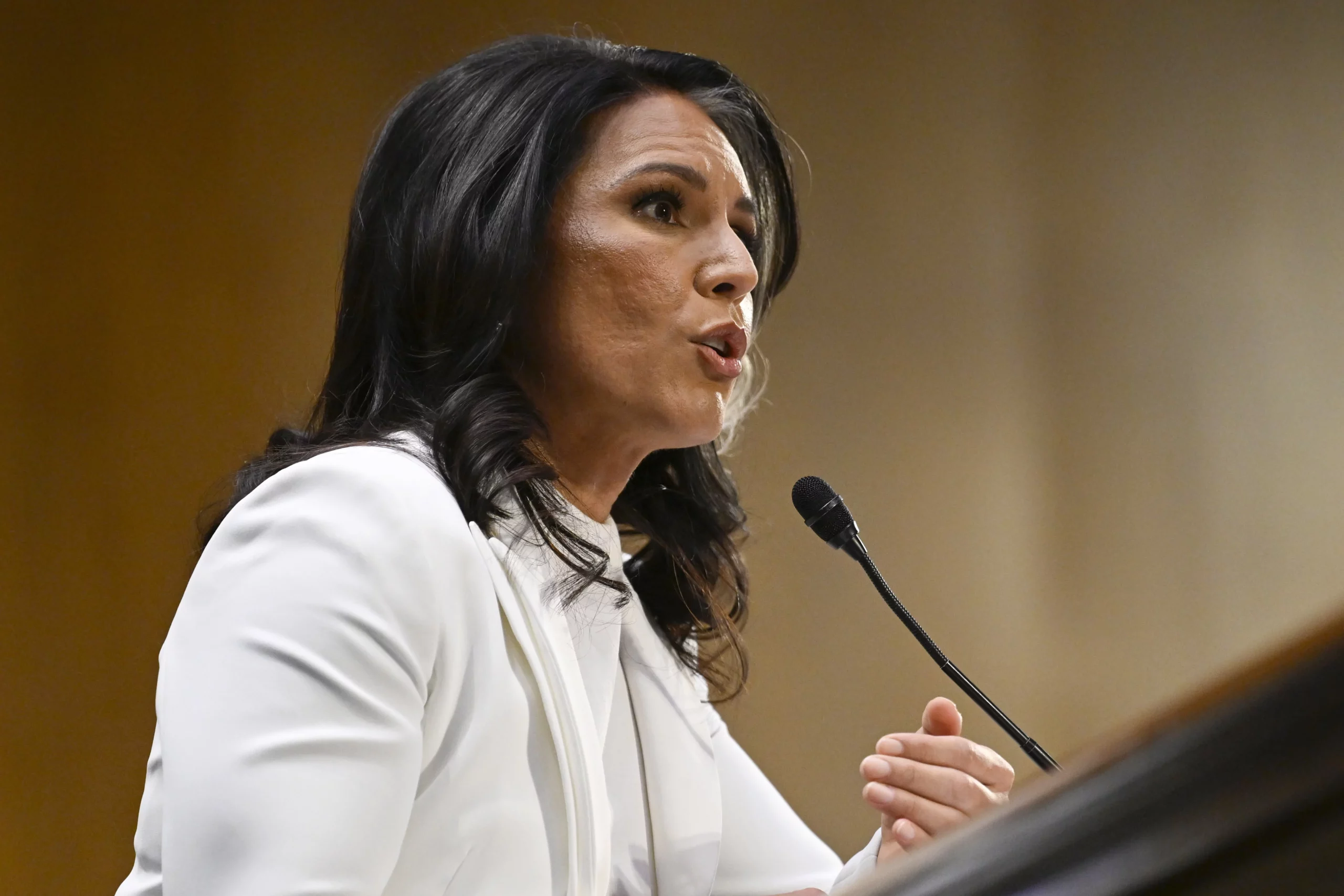
The vote was 9 to 8, with all Republicans voting to advance Gabbard’s nomination and all Democrats voting against it during a Senate Intelligence panel vote behind closed doors on Tuesday afternoon. Gabbard’s advancement out of the committee comes after she was able to secure the support of multiple Republicans on the fence about her nomination despite a turbulent confirmation hearing.
Sens. Todd Young (R-IN), Susan Collins (R-ME), James Lankford (R-OK), and Jerry Moran (R-KS) appeared at one time to have concerns about Gabbard’s views on several key issues. However, the four indicated ahead of the vote that they feel more comfortable moving forward with the nomination after a closed session and further conversation.
The senators have been facing a wave of political pressure from Trump allies. Newly confirmed CIA Director John Ratcliffe, former Sen. Richard Burr (R-NC) and former NSA adviser Robert O’Brien made calls to senators on Gabbard’s behalf over the weekend, according to a source familiar. Gabbard, former Democratic congresswoman, has also spoken to senators since her hearing, the source said.
Lawmakers on both sides of the aisle gave Gabbard more than a half-dozen chances to withdraw her past support of NSA leaker Edward Snowden during her confirmation hearing, but she didn’t take them.
Instead, Gabbard continued to repeat that Snowden “broke the law,” but declined to call him a traitor. She also mentioned that he exposed “egregious, illegal and unconstitutional programs that are happening within our government.”

In an op-ed in Newsweek over the weekend, Gabbard wrote that she explained in the closed session in her confirmation hearing why she refused to call Snowden a traitor.
“Treason is a capital offense, punishable by death, yet politicians like former Secretary of State Hillary Clinton and former US Senator Mitt Romney have slandered me, Donald Trump Jr. and others with baseless accusations of treason,” Gabbard wrote.
“It is essential to focus on the facts, not the label. Snowden should have raised his concerns about illegal surveillance through authorized channels, such as the Inspector General or the Intelligence Committee, instead of leaking to the media.”
Young, who had spoken with Vice President JD Vance over the weekend, sought written assurances on Gabbard’s perspective on whistleblowers in which she committed to holding any member of the Intelligence Community accountable for disclosing classified information, examine existing laws and regulations to ensure it would not happen in the future and to not recommend a pardon for Snowden in the future.
“JD Vance played a critical role in making sure that the administration knew that I required certain assurances before I could become a yes,” Young said, speaking to reporters on Tuesday. “I spent a lot of time with the materials she had already – the nominee– had given us, which is questions for the record, transcript from her public hearing, speaking with the staff primarily about statements she had made.”
“We wanted to give the president his nominee in the end, I wanted national security reassurances. As a former Marine Corps Intel officer, we both exit this happy and prepared to work with one another,” Young added. “I had a lot of leverage, right, I was aware of the leverage I had and I used it to good effect, and that’s why we’re now in a position where I’ve been able to get these assurances, which I regard as significant and I’m able to be supportive.”
Collins, for her part, said her concerns had been addressed after Gabbard committed not to recommend a pardon for Snowden during her confirmation hearing. The Maine senator’s endorsement on Monday sent a strong message about Gabbard’s prospects of being confirmed, as she is one of the primary sponsors of legislation to overhaul the U.S. intelligence community to create the position in 2004.
“I decided to vote – I will vote for her. I believe that she is committed to strengthening our national security,” Collins said, speaking to reporters on Monday following her announcement of support for the nominee.
Senators on the intelligence panel dove into her record from the eight years she spent in Congress, dissecting her previous comments about a range of subjects including her past support of Snowden, the now-defunct Assad regime in Syria, and her previous criticism of a key law for intelligence collection.
The former 2020 presidential candidate, who dropped out and endorsed President Joe Biden, announced she was leaving the Democratic Party in 2022. In November, she announced she was joining the Republican Party at a Trump rally in North Carolina.
Gabbard, 43, has since staked out a role as an outspoken critic of U.S. military interventions overseas and aid to Ukraine. She served in the Hawaii Army National Guard and was deployed to Iraq with a medical unit.
CLICK HERE TO READ MORE FROM THE WASHINGTON EXAMINER
The Republican Party has a 53-47 majority in the upper chamber, which means any of Trump’s Cabinet nominees can only afford to lose three Republicans’ support and still get confirmed. For Gabbard, even getting to a full Senate vote could be a challenge. There are still several Republican senators to watch during the floor vote – including Sens. Mitch McConnell (R-KY), Lisa Murkowski (R-AK) and John Curtis (R-UT), who have not indicated how they will vote.
Ramsey Touchberry contributed to this report.







